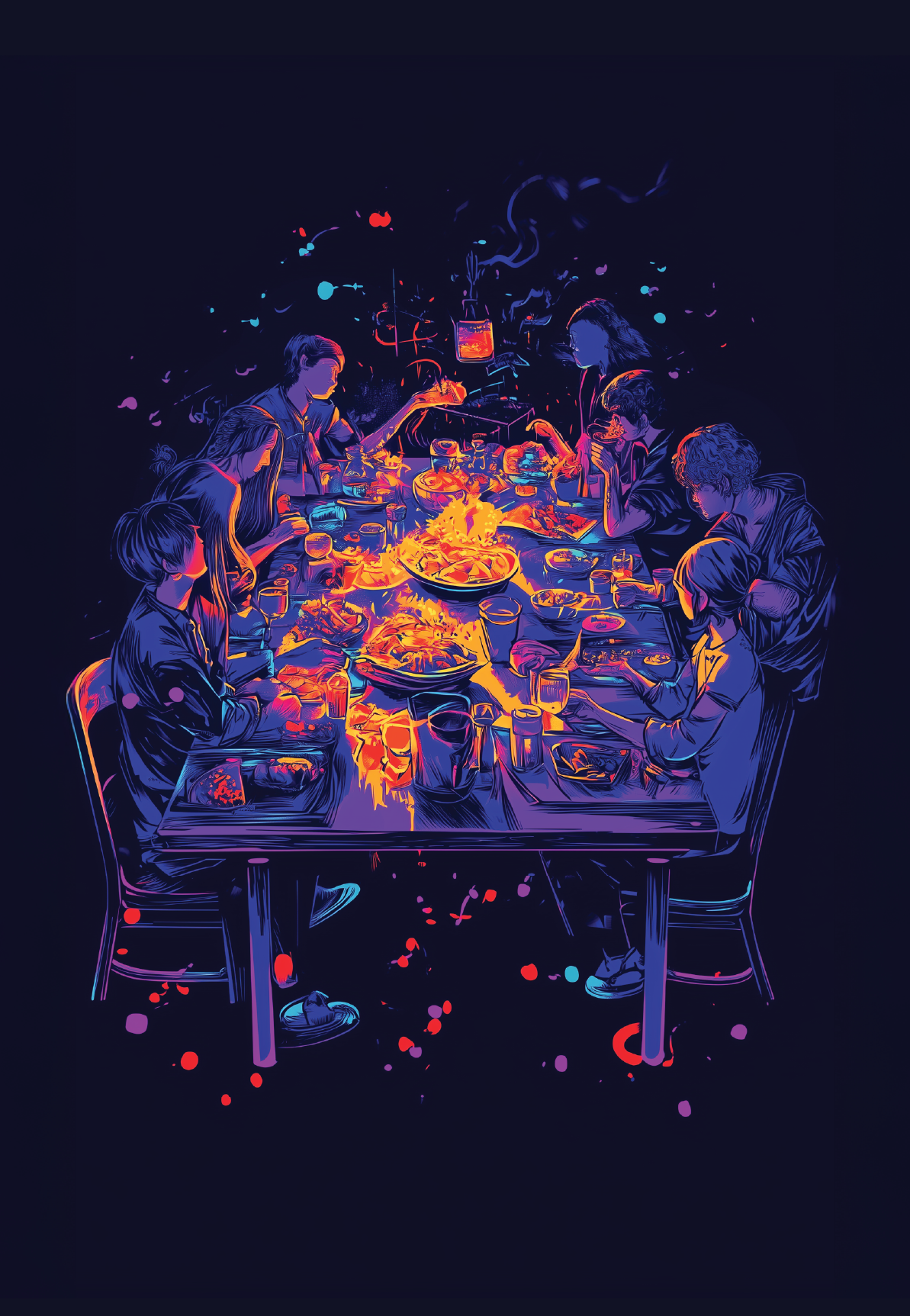

Jul 01, 2025
As polarisation deepens and political uncertainty intensifies, many are turning to offline spaces for something increasingly rare: trust, connection, and shared purpose. We’re seeing people retreat from the noise and volatility of online life and re-root themselves in local, intentional, real-world relationships. Whether through mutual aid groups, protest movements, supper clubs or grassroots organising, the craving for tangible, embodied togetherness is louder than ever. This isn’t about nostalgia for pre-digital life, but rather about creating spaces where people can show up and build meaning side by side.
Where It’s Going: As the global political climate grows more volatile, Conscious Community is evolving into a dual force: part sanctuary, part engine for resistance. Offline spaces are now both a refuge from digital noise, as well as strategic sites for organising and collective action.

Launched in early 2025, Angry Hour is an informal happy hour series for people navigating political despair and still showing up for change. The gatherings offer a low-pressure space to talk candidly about life and work under the growing shadow of Trump’s presidency. With no formal programme, the event invites attendees to share drinks, wear name tags labelled with what’s making them feel pessimistic and/or optimistic, and connect as ‘pissed-off optimists’: people who see injustice clearly but still believe in a better future.
So What: In a political landscape marked by fear and fatigue, Angry Hour offers a space to feel frustrated and hopeful, alone and together. Sometimes, people just need a room, a name tag, and the invitation to be real. It’s about offering community without conditions, as an act of care.
This Singaporean laundromat doubles as a community space, serving as a café-coworking-laundry hybrid to reinvent everyday errands as moments for community connection.
Gen Z and Millennial players are joining chess, mahjong, and backgammon groups, in hopes that the old-fashioned game clubs might help ease isolation and digital overload.
The London-based ‘Offline Club’ sells tickets for ‘digital detox’ nights, where attendees lock their phones in deposit boxes at the door. People pay £9.50 for the chance to log off and make in-person human connections.